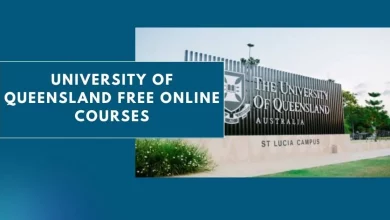How to Write a Motivation Letter for Scholarship Application

Motivation Letter for Scholarship: A motivation letter is frequently required as part of the application process when applying for scholarships. You can demonstrate your enthusiasm, drive, and likelihood of success in your chosen subject of study with the use of a motivation letter. You get the opportunity to show off your personality and persuade the scholarship selection committee that you are the most deserving recipient of the award. We’ll go over how to create a motivation letter for a scholarship application in this article.
Read More: Recruitment Agencies for Foreigners in Bahrain 2023
1. Understand the Purpose of the motivational letter for the scholarship
Understanding the aim of your motivation letter is the first step in crafting one that works. The scholarship committee can learn more about you through your motivation letter than they can from your academic record and standardized test results. You have the chance to demonstrate your personality, drive, and ability to be successful in your chosen field of study.

2. Research the Scholarship and the Institution
Research the scholarship and the organization granting it before you start writing your motivation letter. This will make it easier for you to modify your letter to meet the particular needs and objectives of the scholarship program. Make a note of the requirements for eligibility, the selection procedure, and any other pertinent details that can help you while writing.
3. Start with a Strong Introduction
Your motivation letter’s introduction ought to grab the reader’s attention. Start off by sharing a personal story or making a statement that demonstrates your enthusiasm for the subject matter. The accomplishments, experiences, and abilities that make you an excellent contender for the scholarship can also be mentioned.
4. Showcase Your Goals and Ambitions
Your goals and aspirations should be highlighted in the body of your motivation letter. It is crucial to demonstrate to the scholarship committee that you have a specific goal in mind and how the scholarship will help you get there. Describe your career objectives in detail, highlighting how the scholarship supports them.
5. Emphasize Your Achievements and Experiences
It is essential to showcase your accomplishments and experiences in addition to your goals and aspirations. Any academic honors, extracurricular pursuits, research endeavors, or volunteer work that demonstrates your capacity for achievement in your chosen field of study may be included.
6. Explain Why You Deserve the Scholarship
Your chance to persuade the scholarship selection committee that you are the most deserving recipient of the award is in the motivation letter. Make a strong argument for why you should receive the scholarship. You might highlight your academic success, leadership abilities, enthusiasm for the subject of study, or any other relevant traits that set you apart from other candidates.
7. End with a Strong Conclusion
Your motivation letter’s conclusion needs to be impactful and unforgettable. You might reaffirm your love for the subject and make a point of explaining how the scholarship will enable you to accomplish your objectives. Additionally, you can express your appreciation for the chance to apply for the scholarship and your enthusiasm for the organization that is providing it.
8. Revise and Edit Your Letter
It is crucial to carefully review and modify your motivation letter after you have finished writing it. Make sure there are no grammatical, spelling, or inappropriate phrasing flaws. Request input from a friend or mentor once they have read your letter. Make sure your letter is well-structured, simple to read, and error-free.
9. Submit Your Motivation Letter on Time
Last but not least, it’s critical to deliver your motivation letter on schedule. Make sure you submit your application before the deadline and in accordance with all guidelines. Verify that all of the necessary documents, including your motivation letter, are included and that they are formatted properly.
A motivation letter is a crucial component of the scholarship application process, to sum up. You get the chance to demonstrate your personality, drive, and likelihood of success in your selected area of study. By using these suggestions, you can create a motivation letter that will make you stand out from the competition and improve your chances of getting a scholarship.
Tips on Writing a Good Motivation Letter for Scholarship
One of the most important things you must finish if you want to be considered for a scholarship is writing a powerful motivation letter. This letter serves as a resume of your successes, goals, and excitement for your field of study. You can write a compelling motivation letter for a scholarship by using the following advice:
1. Start with a strong introduction
Your motivation letter’s opening paragraphs are extremely important since they establish the tone for the remainder of the letter. Start off with a compelling introduction that grabs the reader’s interest and compels them to keep reading. You might open with a true story or a quotation from your area of study.
2. Explain why you’re passionate about your field of study
The scholarship provider is interested in learning why you are so devoted to your topic of study. To show your passion and enthusiasm, use concrete examples and your own experiences. Describe how the principles and priorities of the scholarship giver connect with your academic and professional ambitions.
3. Highlight your achievements and experiences
Your achievements and experiences that highlight your abilities and enthusiasm for your subject of study should be highlighted in your motivation letter. In order to stand out from the competition, be sure to highlight any accolades, works in periodicals, volunteerism, internships, or other relevant experiences.
4. Align your goals with the scholarship provider’s values
To make sure that your objectives coincide with those of the scholarship provider, research the organization’s mission and values. Describe how receiving the grant will enable you to advance your academic and professional aspirations and your field of study.
5. Personalize your letter
Use caution when writing your motivation letter; following a generic template won’t make you stand out from the competition. Personalize your letter by using the scholarship provider’s name in your salutation and by including relevant information about their business and core principles.
6. Be concise and clear
You should type your motivation letter in 12-point font, single-spaced, and between one and two pages long. To communicate your ideas, use simple, clear language; stay away from jargon and convoluted words. To structure your letter and make it easy to read, use headings or bullet points.
7. Proofread and edit your letter
To avoid any typos, make sure to properly proofread and modify your letter. Ask a friend or member of your family to read your letter and offer comments. Make sure your message is well-organized and simple to read and proofread it for spelling, grammar, and punctuation mistakes.
By using the advice in this article, you may create a convincing motivation letter that highlights your accomplishments, life experiences, and enthusiasm for the subject of your choice. Always customize your letter, tie your objectives to those of the scholarship sponsor, and draw attention to your noteworthy accomplishments and life experiences. You can improve your chances of getting a scholarship and attaining your academic and career objectives by using these suggestions.
Frequently Asked Questions
-
How long should a motivation letter be?
A one- to two-page motivation letter should be written in 12-point font, single-spaced.
-
What should be included in a motivation letter?
An introduction, goals and aspirations, successes and experiences, justifications for applying for the scholarship, and a compelling conclusion should all be included in a motivation letter.
-
Should a motivation letter be formal or informal?
Although it should be formal in tone and presentation, a motivation letter should also reflect your personality and enthusiasm for the subject matter.
-
Can I use a template for my motivation letter?
While it’s acceptable to use a template as a guide, it’s crucial to customize your motivation letter to reflect your objectives and experiences.



